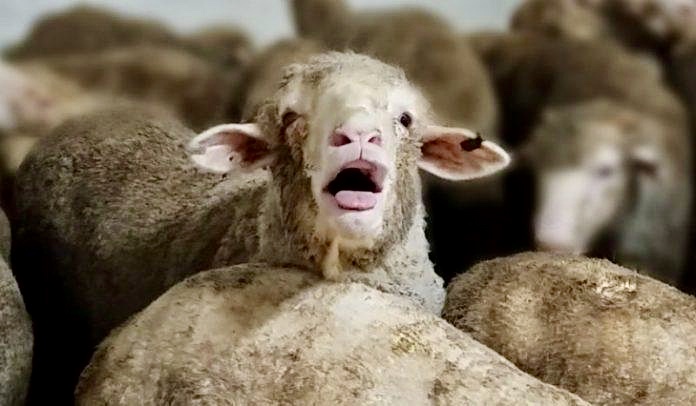As the National Council of SPCAs (NSPCA) prepares for a third court hearing on August 6th to stop the proposed shipment of between 55,000 to 85,000 live sheep to the Middle East, Humane Society International/Africa is urging South African citizens to add their voices of support to end the cruelty of live exports.
“The conditions experienced by animals during long-distance sea voyages contravene many provisions of South Africa’s Animal Protection Act 71 of 1962. Transporting tens of thousands of animals on a vessel means that they would endure 21 days of being packed together in pens without proper food and care, standing in their own excrement, breathing in ammonia which can lead to respiratory problems, exposure to the perpetual noise of the ship’s motors, and heat stress which can kill the animals, much like leaving a dog in a car on a hot day,” said Tony Gerrans, HSI/Africa’s Executive Director, in a statement.
“In 2016, some 3,000 sheep died en route from Freemantle to Doha onboard the same ship – the Al Messilah – that was waiting in East London’s port to load South African sheep. Such treatment is clearly inhumane, and so we fully support the NSPCA asking the High Court to declare it unlawful.
“Cruelty to animals erodes our most fundamental values and undermines our humanity. It should never be tolerated in the pursuit of profits, and the law is clear on this. With up to 85,000 animals on board, the crew members cannot ensure adequate welfare oversight of individual animals on a regular basis – especially those at the back of the pens. And, indeed, NSPCA inspectors have reported distress, injury, and suffering during loading for previous voyages. It is clear that if this shipment is allowed to go ahead, we will intentionally be placing these sensitive animals in an environment where welfare standards are far lower than those we would ever allow in South Africa,” continued Gerrans.
Live sheep export by sea from Australia to Kuwait was banned in 2019 over the Northern Hemisphere’s summer months, following mass moralities on board during some of these voyages and studies of heat stress affecting the sheep. Other countries such as New Zealand, which is highly dependent on animal agriculture, have banned the live export of animals for slaughter entirely.
Recognizing the welfare challenges inherent in this practice, some countries require independent veterinary oversight on board. This is not the case with South Africa, where there are no regulations governing live transport by sea.
“On previous voyages, both the NSPCA and HSI/Africa have offered to pay for the services of an independent vet to accompany the sheep en route to the final destination in Kuwait so that these assertions of welfare can be validated. But Al Mawashi has rejected or ignored these offers,” stated Gerrans.
HSI/Africa is calling on all South Africans to add their voices to prevent the shipment of live sheep:
-
Write to the Department of Rural Development & Agrarian Reform (Veterinary Services) Eastern Cape, urging the department not to allow the export of these sheep on the Al Messilah. Email: Dr. Vusi Rozani at vusi.rozani@drdar.gov.za
-
Urge the National Department of Agriculture, Land Reform and Rural Development to pass regulations that prohibit the live export of all animals by sea. Email Minister Thoko Didiza at: COSMIN@daff.gov.za
-
Tell the Red Meat Industry Forum to support a total ban on the cruel export of animals by sea. Email: Amish Kika at manager@rmif.co.za



